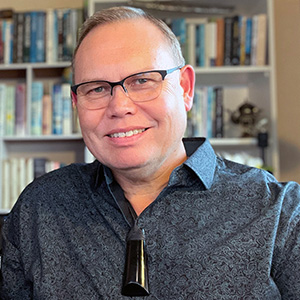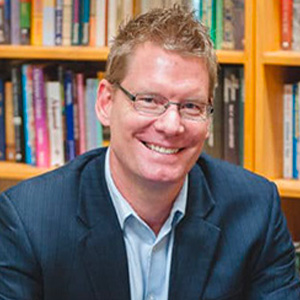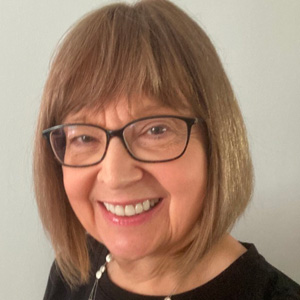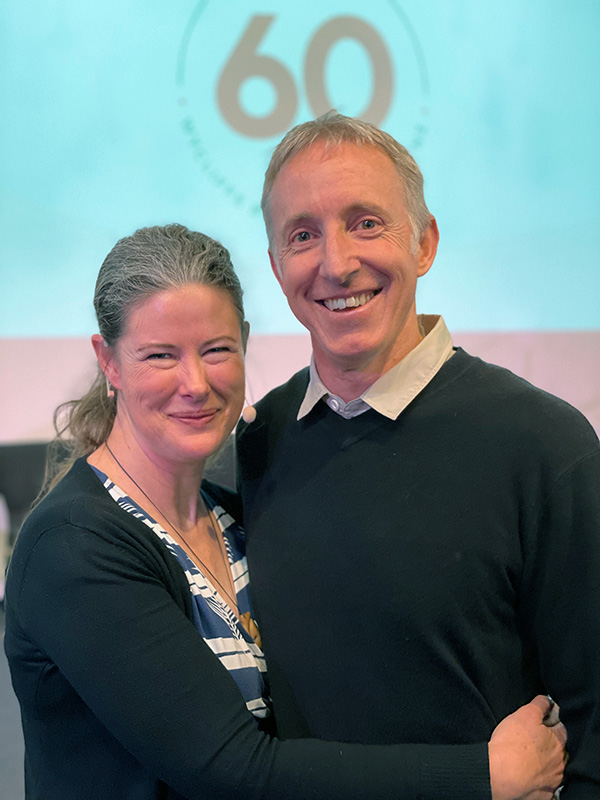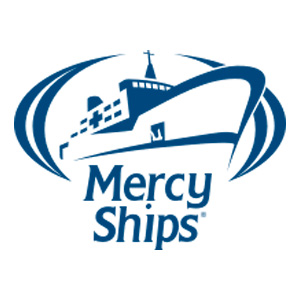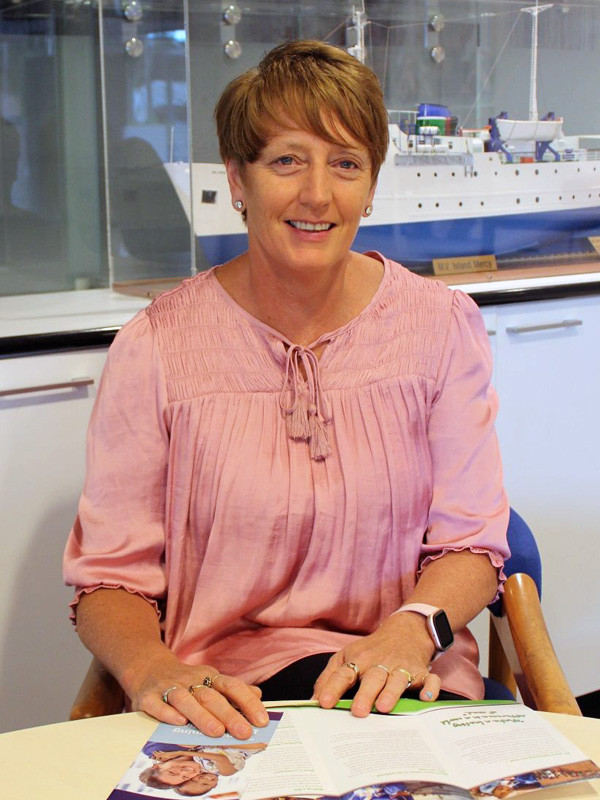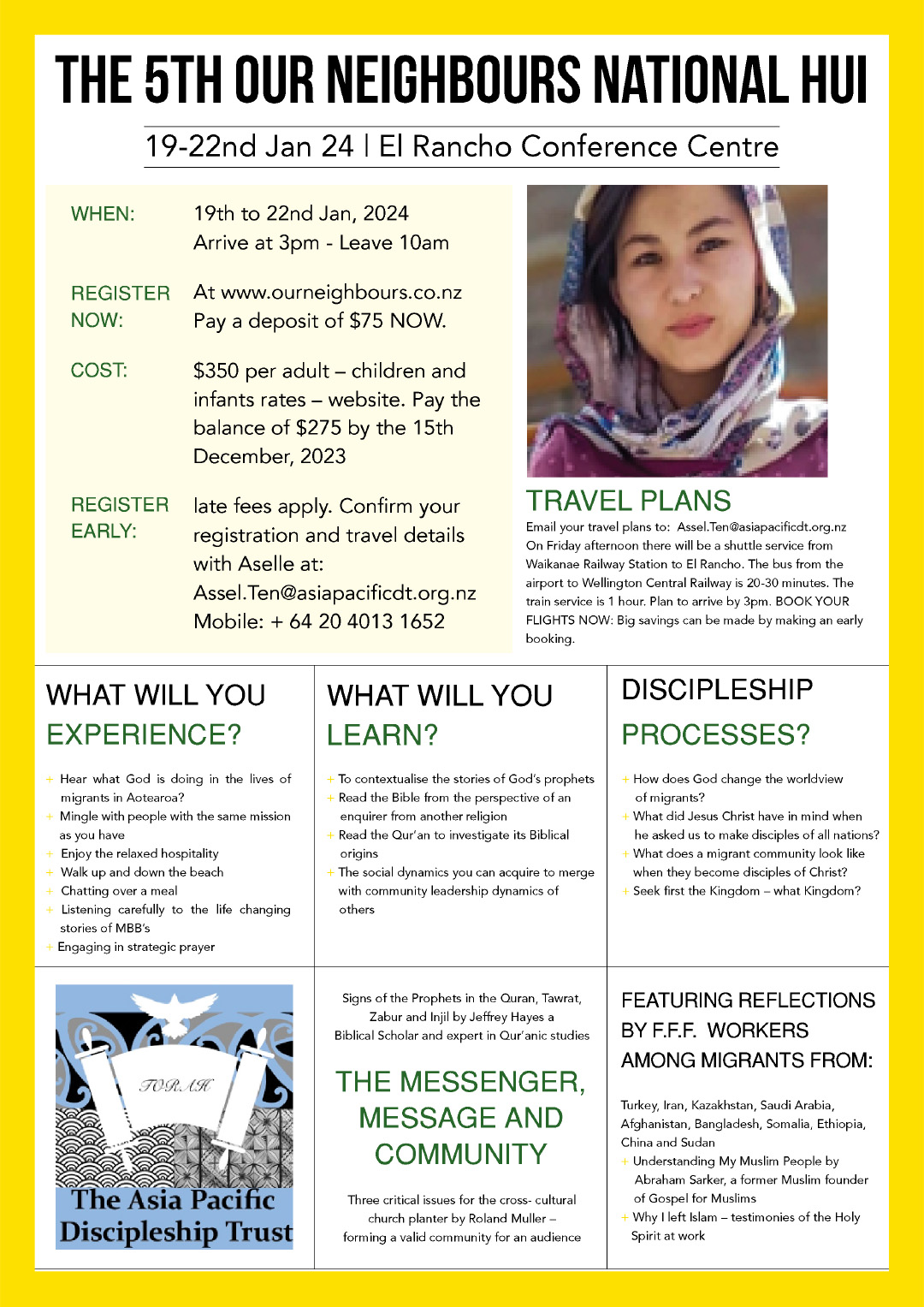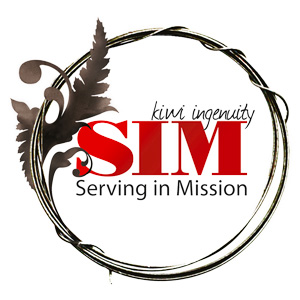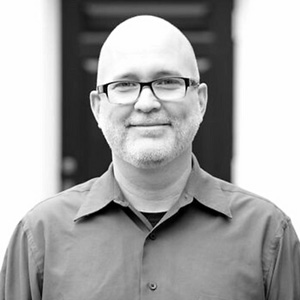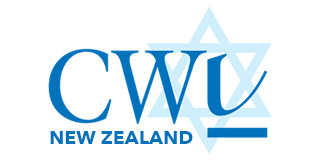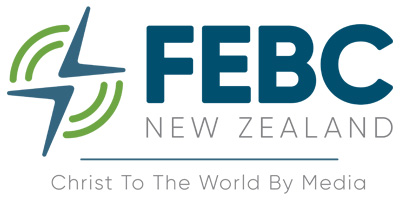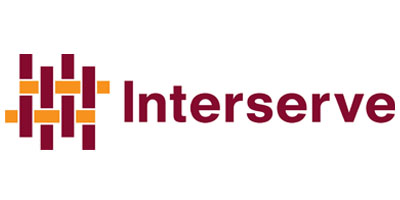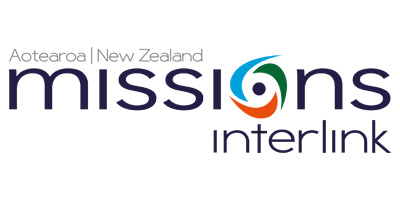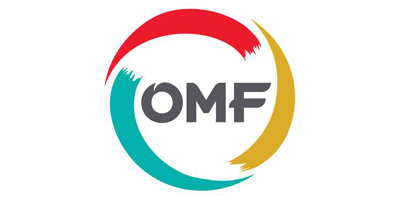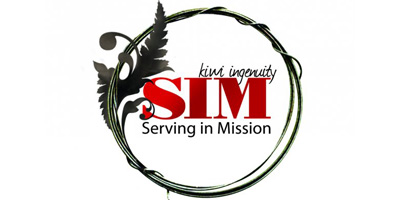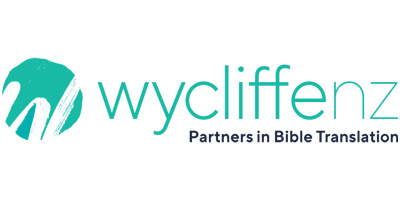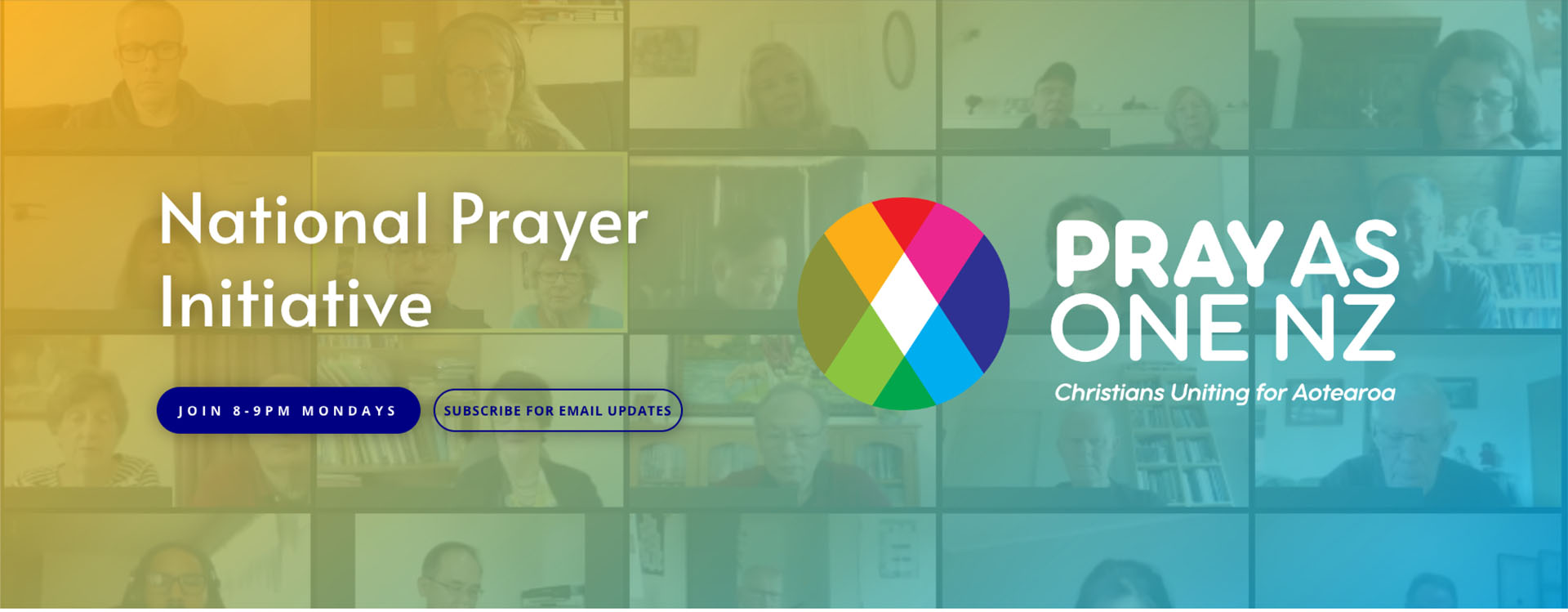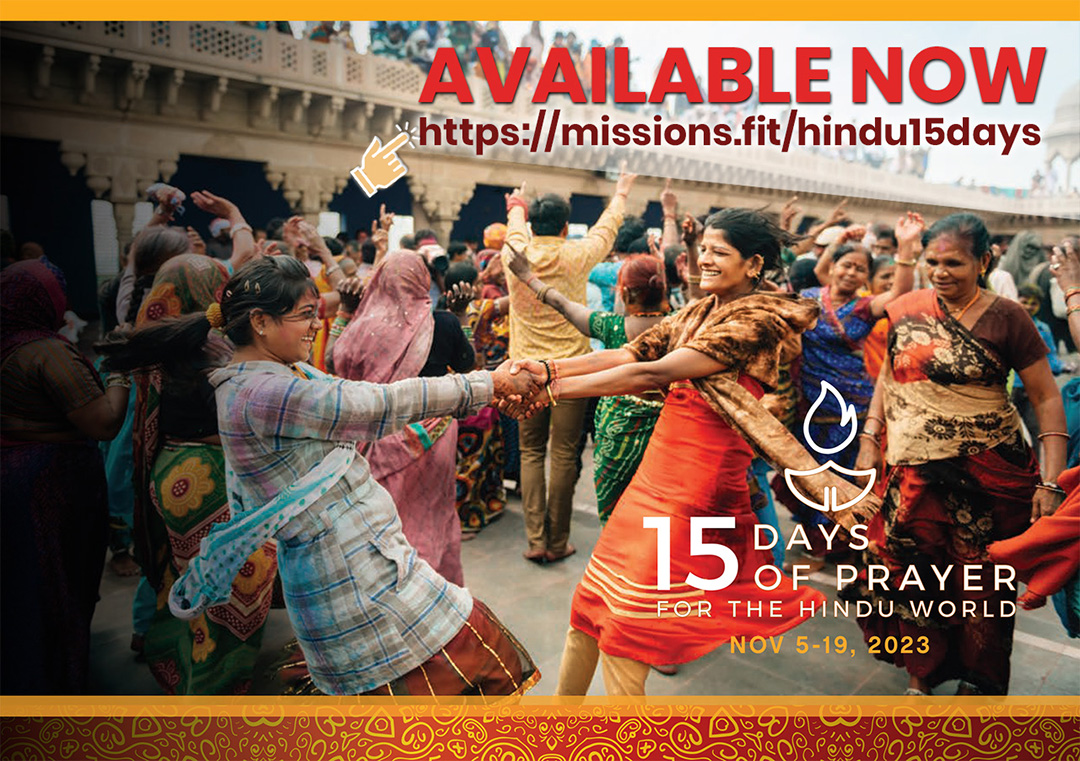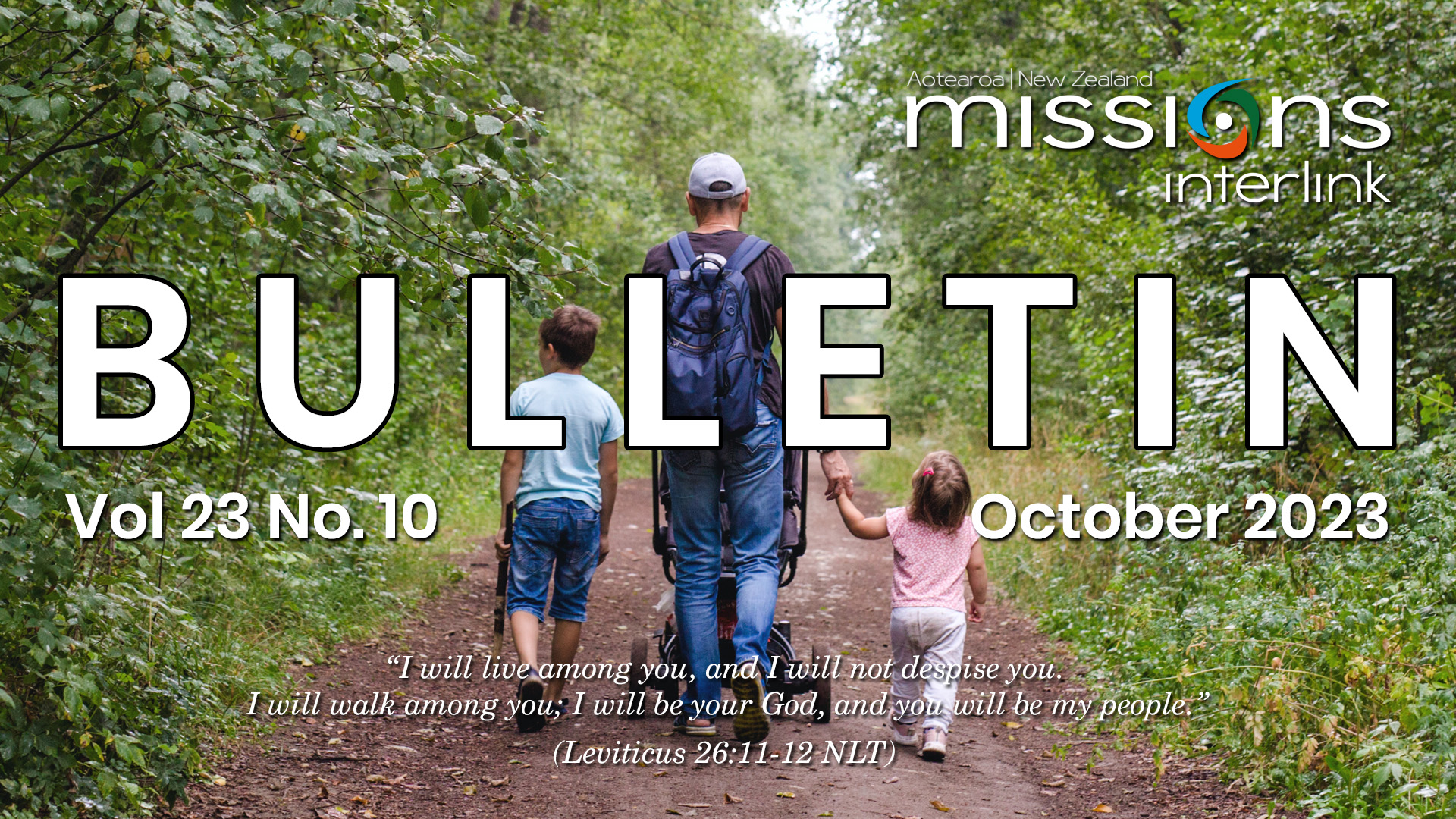
QUICK MENU
EDITORIAL
- Unbroken Weave
EQUIP
- Christianity Redfined
GO
- Most Strategic Missions
- Church &/or Agency?
- New Leaders (WBTNZ, Mercy Ships, & SIM Intl)
CARE
- Long Distance Relationships
PRAY
- CWI, FEBC, INTERSERVE, MINZ, OMF, SIM, WEC, WBT, Elections.
SPOTS
- Latest News. Events & Opportunities

EDITORIAL
UNBROKEN WEAVE
By Dr Jay Matenga
Jay is the Executive Officer of Missions Interlink, Director of Global Witness for the World Evangelical Alliance, and Executive Director of WEA’s Mission Commission. Jay writes and speaks on missions related subjects globally. His blogs, articles, and other public contributions are made available for free on jaymatenga.com
This month’s whakataukī (proverb) is, “Hē o te kotahi, hē o te katoa.” [The mistake belongs to the collective.]
As I’ve said before, I started life in Canons Creek, Porirua, Aotearoa New Zealand—a notorious neighbourhood in the 1970s, noted for its gang violence and poverty-related issues. One of my most vivid memories is of playing on my front porch with a Tonka toy truck, when a skinny, dishevelled, heavily tattooed white guy stumbled into the adjoining State House one morning bleeding profusely from a stab wound, knife still in. I don’t remember much else about that morning. My early life in ‘da Creek’ is just snapshots. However, when I first saw the movie “Once Were Warriors” at Missionary Training College, I remember feeling viscerally triggered by many of the scenes.
In contrast to the trauma, I also fondly remember collectively singing the national classic Tūtira mai, which became the All Blacks rugby team anthem in 2017 (where is it now when we need it most?!) and recorded again in 2020 as a collaboration between US and NZ armed forces with a slightly updated melody in places. As I noted back in 2017, the song was composed by Anglican Canon Wiremu Te Tau Huata of Ngāti Kahungunu (my tribe) in the late 1950’s. It grew in popularity as he performed it in churches and Bible classes around the nation. Its use in public schools was not done with Huata’s consent or credit and sadly the version we learned at the time was a little corrupted. Such is the way when cultural artifacts are appropriated!
Canon Huata was involved in the Ecumenical Movement, concerned for the unity of the global Church, most visibly represented by the World Council of Churches today. Tūtira mai (Come, align) is informed by Huata’s desire to see believers unified. In English, the song’s lyrics translate to:
Come together and align as one, people | All of us, all of us (line repeated)
Seek after enlightenment/understanding, and love of others, everybody!
Think as one, act as one | All of us, all of us.
As my doctoral work was drawing to a close in 2017, from within an Evangelical camp, I considered the fracturing of our Protestant faith and the challenge that the Ecumenical Movement seems not to have solved, while Evangelicals don’t attempt to or don’t even acknowledge that there is a problem. We fracture into increasingly diverse movements and new denominations. With unity in mind, I concluded my thesis with the lyrics of Tūtira mai as a statement of hope in keeping with Jesus’ prayer in John 17. But I recast the song as a lament in a minor key, a waiata (song) that I perform from time to time to express my yearning for the alignment to which the lyrics call us. The alignment I sang about as a boy in primary school, I believe, is the antidote to the horror of conflict, aggression and outright violence that was the stuff of my upbringing. The song speaks of relational reconciliation to a world ripped apart by acts of relational destruction. Its melody (whichever way it is sung) is a gospel melody.
For Māori, unity within a family group or tribe is assumed. The raranga (weave) is whakapapa, it is in the blood (or via adoption), and cannot be broken. Relationships can be strained, and communities wounded by misdeeds, but the connection remains. This kind of assumption is rare these days, at least in what I call the “Industrial world”. It is still very much the norm for those with values aligned with the “Indigenous World”, which assumes deep interconnections between all things and understands our lived reality in relational terms. It should be the norm for those of us in Christ too. After all, we overcome the enemy by the blood of the Lamb (and our testimony to that fact — Revelation 12:11). What is the blood if not whakapapa (lineage, belonging, heritage)? Eurocentric theologies focus on the sacrifice and that is undeniably significant, but the shedding of blood was for the reconciliation of relationship. So the two, belonging and sacrifice, are intimately related (pun intended). Tūtira mai.
For all the challenges that can arise in a collectivist social setting (no more so than in an individualist one), those who carry such values, fashioned over eons in tribal contexts, are better equipped to hold unity-in-tension and deal effectively with those who would threaten such unity. In a 2021 interview with Moana Maniapoto, Māori kaumatua (elder and statesperson) Tā Tīmoti Kāretu observed,
“The old people said: “Hē o te kotahi, hē o te katoa.” The mistake belongs to the collective. Everything’s collective with us. Because that’s the only way you can get any discipline—by saying you embarrass us all when you do whatever you do.” But, he laments, “it just doesn’t work anymore, which is sad because it was a good way of keeping the community well-behaved (aligned).”
This was a response to Moana observing that in te ao Māori (the Māori world) there is no word for guilty. Instead, in keeping with Tā Tīmoti’s response, there is just responsibility. You’re not guilty for what you’ve done so much as you are responsible for breaking faith, for breaking the peace. And so, you are responsible for restoring it. Tūtira mai.
I have recently had conversations with Anglicans on both sides of a rift that threatens to divide the global communion. Both feel they are holding true to the faith with their application of the Word (Scripture) in the world (culture). When I express my sadness that it may come to yet another schism in Protestantism (which itself is the result of a schism) representatives of each side insist that it is not them breaking faith but the other. As we look back through Church history with one particular understanding of unity, it would seem that Jesus’ John 17 prayer has abjectly failed. That is one interpretation. However, if we instead viewed “as one” in a collectivist way, as an integrated singularity, an indivisible one-ness, an unbreakable weave; if we view it as an expression of harmony, we see that in spite of the tensions, rifts, and schisms, the connection remains. Jesus’ prayer fulfilled. As I am wont to say now, nowhere in the material universe does harmony exist without tension. You cannot create harmony without tension. Harmony is an integrated singularity of multiple tones (tone = tension). In the cosmos, a black hole is called a singularity, the potential tipping point of Artificial Intelligence taking over is called a singularity. The idea signifies the gravity of something drawing all things into it (cf. John 12:32).
“That the world will believe… that the world will know” (John 17:21-22 NLT) that Jesus was lovingly sent to usher in New Creation (or the Kingdom of God if you wish) is God’s primary purpose for us this side of eternity. It is to this reality that we are all witnesses. When one of us makes a mistake, all of us are affected. We each must take responsibility for repairing the offence, for perpetually repenting and reconciling with the collective. While we may differ on many things because we view them from different biblically-faithful perspectives, the weave of faith holds. It only appears torn to the one who rejects the possibility that those who think differently do not belong in the family. In which case, such a person may be disqualifying themselves. Holding fast to the essentials (and being wary of outright heresy), our extra convictions may differ but our love for one another must not wane.
James notes, “the testing of your faith develops perseverance. Perseverance must finish its work so that you may be mature and complete, not lacking anything” (James 1:3-4 NIV). What is this faith if not the fact that Jesus has made us an integrated singularity—one spiritual whakapapa? Persevering with one another’s differences, through the trials or troubles that we cause one another, strengthens our Christlike character. Our pathway to maturity starts by accepting that we are inseparable in spite of our differences. Our shalom/harmony, is our single greatest witness to the world of the power of God in Christ to forge New Creation. Tūtira mai ngā iwi, come into alignment people, Together: On Mission.

CHRISTIANITY REDEFINED
FREEING THE GOSPEL AND CHURCH FROM WESTERN CAPTIVITY
By Dr
Graham is a champion of non-Western voices in theology and mission, the founding Director of The Global Church Project. He an author (12 books), pastor, professional supervisor, and scholar of World Christianity, intercultural theology, and mission studies. He has been in ministry since 1988, involved in church planting, pastoring, theological education, professional supervision, and training people for ministry and mission. This long-form article was curated from Graham’s website/blog, July 18 , 2023.
Majority World and indigenous and diaspora churches are redefining twenty-first-century Christianity. Those of us who are Western Christians must decide how we’ll respond. Stephen Bevans (Professor of Mission and Culture) writes,
We are now living in a “world church” where the vast majority of Christians are [from the Majority World]. David Barrett’s statistical studies have confirmed this shift, and Philip Jenkins has predicted that by 2025 fully two-thirds of Christians will live in Africa, Latin America, and Asia… Scholars are unanimous in acknowledging the accuracy of the facts. The “average Christian” today is female, black, and lives in a Brazilian favela or an African village.
Let’s take China, for example. Professor Fenggang Yang of Purdue University makes an important prediction. If current growth rates continue, within one generation, China will have more Christians than any other nation on earth. In 1949, Protestant churches in China had one million members. In 2010, that number was 58 million. By 2025, there are likely to be 160 million Christians in China. By 2030, it will likely be 247 million (outnumbering Christians in Mexico, Brazil, and the United States).
In an interview with The Telegraph, Fenggang Yang says, “Mao thought he could eliminate religion. He thought he had accomplished this. It’s ironic—they didn’t. They actually failed completely.”
I don’t think we should turn to the Chinese church (or any culture, for that matter) for the answers to renewal or revival. The Chinese church has its own struggles, and each faith community must discover context answers to local problems and opportunities. But we must still listen and learn from what God is doing in the Majority World.
Philip Jenkins says,
“We are currently living through one of the transforming moments in the history of religion worldwide. Over the last five centuries, the story of Christianity has been inextricably bound up with that of Europe and European-derived civilizations overseas, above all in North America. Until recently, the overwhelming majority of Christians have lived in white nations… Over the last century, however, the center of gravity in the Christian world has shifted inexorably away from Europe, southward, to Africa and Latin America, and eastward, toward Asia. Today, the largest Christian communities on the planet are to be found in those regions.”
Who are Majority World, First Nations, and Diaspora Christians?
So, whom am I talking about when I refer to Majority World and indigenous and diaspora Christians?
1. Majority World Christians
I use the term “Majority World” as a better replacement for the older terms “Third World,” “Developing World,” or “Non-Western World.” Majority World Christians are those in Africa, Asia, the Caribbean, Eastern Europe, Latin America, the Middle East, and Oceania. I use the term Majority World because most of the world’s population is in those cultures today. The majority of the church is in those cultures too. I don’t use the terms non-Western, Third World, or Developing World. These terms use Western cultures as their point of reference. They imply Western superiority or centricity. Global South is also too limiting, given that many Majority World Christians live in the North and the East. Majority World seems to be the term that works best.
2. First Nations and Indigenous Christians
Indigenous and First Nations Christians are believers from ethnic groups that were indigenous to a territory before being incorporated into a national state, and who are politically and culturally separate from the majority ethnic identity of the state that they are a part of. This includes people groups like the Australian Aboriginal and Torres Strait Islanders, Māori, Native Americans, and other First Nations people.
3. Diaspora Christians
Diaspora people are those who have spread or been dispersed from their homeland. Diaspora or immigrant Christians are having a significant influence on the shape of Western and global Christianity. These include Hispanic, Portuguese, or Asian minorities in the USA, UK, Canada, Europe, Australia, etc. It’s interesting, for instance, to note how Latin American and Chinese Diasporas are active in evangelism and mission in Europe in the same way in which the Filipino or Salvadoran Diasporas carry on missions in the USA.
Freeing the Gospel from White Western Cultural Captivity
What does all this mean for the mission, theology, worship, and church communities worldwide? And what does it mean, especially for the Western church?
I had the pleasure of doing a filmed interview with Lamin Senneh at Yale Divinity School. The interview was for The Global Church Project. The GlobalChurch Project films hundreds of inspiring Christians from Asia, Africa, Latin America, First Nations, diaspora cultures, and more on mission, church, faith, and theology.
In that interview, Lamin offered a striking challenge to the Western church. Here’s my paraphrase of what he said:
We in the West are confident and articulate people. Theology has served us well as a vehicle for our aspirations, desires, and goals. There is no shortage of theological books on all sorts of imaginable subjects. There are how-to-do manuals instructing us about effective ministry. These manuals tell us how to fix our emotions. They affirm our individual identity and promote our choices and preferences. They tell us how to change society through political action. They show us how to raise funds and build bigger churches. They teach us to invest in strategic coalitions. All this language leaves us little time or space to listen to God.
What if God has something else to say to us? What if that something else challenges what we want to hear? Yet, without reciprocity in the moral and spiritual life, of hearing and responding to the intimations of the Spirit, it is hard to see how God can be salient in the lives of modern men and women.
The Gospel suffers from a form of cultural captivity in the West.
What is “white cultural captivity”? In essence, it is when the church shapes its understanding of the gospel and of Christian faith around white, Western culture. The gospel (and also our worship, prayer, mission, theology, and faith) then become “captive” to white, Western ideas and cultures. The way to free the gospel from this “white Western captivity” is to start to listen and learn from (and to honour) ideas and theologies from Asia, Africa, the Middle East, Latin America, etc. In other words, we will only escape “white Western captivity” when we become a truly global church that equally honours all Christian cultures and theologies (and not just the white, male, Western ones).
World Christianity has lessons to teach us all. If we allow it, the de-Westernization of Christianity may help us address the Western cultural captivity of the Gospel.
Thanks to the grace, power, and sovereignty of the Spirit of Christ, this de-Westernization of the global church may help us find freedom from our cultural captivity. The astonishing growth and vitality of movements in World Christianity will make this truth even more evident to us over the following decades.
Embracing a New Story
A missional church commits to diversity and multi-ethnicity. It’s active in mission in its local context. And it’s attentive to what God is doing globally. So, we need a local-global or glocal church. God calls the church a glocal, missional, multiethnic “city on a hill.” This church is constituted and enriched by indigenous, Western, diaspora, and Majority World peoples.
The global church needs a new narrative. It’s time to abandon our flawed Eurocentric and Americentric worldviews.
We are “Eurocentric” or “Americentric” when we focus on European or North American cultures or histories or theologies to the exclusion of a wider view of faith and the world, very often regarding European or North American cultures as more important than other cultures.
The Gospel and our churches in the West suffer from white, Western cultural captivity. This cultural captivity has largely blinded us to what God is doing in the world and what he’s saying to us.
This cultural captivity shapes our homogenous mission and Eurocentric theology. It determines our monocultural church leadership and outdated denominational systems. It forms our individualistic spirituality and consumeristic worship. It reinforces our sense of exceptionalism. It solidifies many oppressive and anti-gospel approaches to gender, ethnicity, wealth, and migration. It influences our approaches to vulnerable and marginalized people groups.
This cultural captivity inhabits and shapes the stories we tell. We tell each other stories, but they’re mostly our own stories. They’re usually white, Western, middle-class, educated, privileged, Ameri-centric, and (mostly) male stories. We need a new narrative. Today’s vast majority of the global church isn’t white, Western, male, and middle-class. And the astonishing growth of World Christianity isn’t happening in those places. It’s happening in cultures outside of the West. It’s happening among women, children, and people of a darker skin tone. Where there is growth and vitality in Western settings, it’s usually among diaspora and immigrant churches. As Stephen Bevans says: Today, the average Christian is female, a person of colour, and living in Africa or Asia.
We need a new, global, multi-ethnic, and missional story that embraces the whole worldwide church.
Many white, Western congregations struggle to accept their post-Christendom, pluralistic culture. They are coming to terms with moving from power to powerlessness, from the center to the margins, and from privilege to plurality. The rising numbers of the “religiously unaffiliated” terrifies them. But, many Christian communities in Majority World and diaspora and indigenous contexts have been wrestling with issues of marginality for generations. Marginalization, religious pluralism, persecution, and alienation have been their lot. Yet, somehow, despite or because of that, they have flourished. In fact, they’ve grown exponentially!
We must turn to the churches of Majority World and indigenous and diaspora cultures. Christians in these cultures help us rediscover what it means to be salt, light, and an elevated city. They invite us into local-global missional conversations. To do this, we, as Western Christians, must enter into conversations with Majority World and diaspora and indigenous Christians. They have much to teach us. Listening to others helps us grow in our understanding and practice of mission, church, and theology.
For far too long, the church has been Euro-centric and Ameri-centric. And we’ve marginalized or ignored Majority World, diaspora, and indigenous voices. It is time to listen to Asian, African, Latin American, Middle Eastern, Indigenous, and other Majority World voices. These Majority World voices are rising and redefining our understandings of theology and church and mission. Many Majority World, diaspora, and indigenous churches have extraordinary missional and theological vitality. Openness to these voices needs to happen now. We will only reflect God’s heart and God’s mission when we pursue global conversations, and honour the whole global church.
Over the coming decades, I hope we’ll listen to the thoughts and practices of African, Asian, Caribbean, Eastern European, Oceanian, Middle Eastern, Latin American, First Nations, and indigenous thinkers. These dare us to examine our theologies and missions, and churches. They inspire us to renew the worship, community, and mission of Jesus’ church. They stir us to think in fresh ways about what it means to be salt, light, and a city. They help us become a global missional church—a truly global church.
Being the New Humanity in Jesus Christ (Ephesians 2:11–22)
The church is a new humanity comprising every tribe, language, people, and nation. The church must cultivate a distinct social existence that witnesses this new humanity. The church shapes its community and mission around its commitment to plurality, diversity, unity, and multi-ethnicity.
Western Christianity has much to offer the churches of the Majority World. We have tremendous theological, institutional, financial, cultural, intellectual, artistic, and other resources. These can bless the global church. And the churches of Majority World, diaspora, and indigenous cultures can help us too—they are a gift to the global church. They challenge us to reimagine our mission, leadership, hospitality, creation care, education, worship, discipleship, and more.
The de-Westernization of the global church offers fresh opportunities for global (and local) conversations, renewed mission, and revitalized churches. It challenges us to embrace the new humanity offered in Jesus Christ.
God calls his church to be the “new humanity in Jesus Christ.” The Revelation of John offers a beautiful vision of this new people: “There before me was a great multitude that no one could count, from every nation, tribe, people, and language. They stood before the throne and before the Lamb. They were wearing white robes and holding palm branches in their hands. And they cried out loudly: Salvation belongs to our God, who sits on the throne, and to the Lamb… Praise, glory, wisdom, thanks, honor, power, and strength be to our God forever and ever. Amen!”
BY BILL PEEL & DR JERRY WHITE
Bill is a leader in the global faith-at-work movement. He is the president and founder of the 24Seven Project and is a co-founder of the Faith@Work Summit. Dr Jerry White is international president emeritus of The Navigators, a retired Air Force major general, and a former associate professor of astronautics at the US Air Force Academy. This article is curated from Lausanne’s Evangelism at Work online series, 2 May 2023.
At the Second Lausanne Congress in 1989, Ford Madison, Pete Hammond, Bill Garrison, and Lee Yih presented ‘A Theology of the Laity’, a paper by Garrison which proposed that laypeople are God’s chosen instruments for the task of world evangelism. Referencing Proverbs 30:24–25, he wrote, ‘Although conventional wisdom says the layperson is insignificant and small, God’s wisdom has always been to mystify the world in His choice of instruments.’
In 2010, at the Third Lausanne Congress on World Evangelism in Cape Town, eight hundred individuals gathered for session one of the workplace track. Jerry White, former international president of The Navigators, began his presentation by asking attendees how many of them came to faith after hearing the gospel proclaimed at a large event by an evangelist like Billy Graham or Luis Palau. Fewer than twenty people raised their hands.
White then asked how many came to faith through a co-worker, friend, or family member, and more than 750 raised their hands. Though admittedly unscientific, White’s survey made a resounding statement about evangelism in the workplace and at home.
At the 2019 Lausanne Global Workplace Forum in Manila, Michael Oh, the global executive director / CEO of the Lausanne Movement, noted that one percent of people in the universal church are in professional ministry, and when it comes to evangelism, the other 99 percent are greatly neglected.
“You [the 99 percent] don’t exist to help professional ministry leaders fulfill the Great Commission. We exist to help you do it,” Oh wrote in Christianity Today, placing the responsibility of evangelism not on professional ministers and missionaries who overtly proclaim the gospel, but on ordinary Christians who spend their days in the workplace.
His statements echoed the sentiment of The Cape Town Commitment, in which the 2010 Third Lausanne Congress pledged to:
- Encourage all believers to affirm their work as ministry
- Challenge workers to take their skills, trades, talents, and professions globally where the church cannot go, for the glory of God
- Recommend that church leaders support and recognize the workplace as a mission field
- Urge the body of Christ to pray for Christians in the workplace, businesses, and professions.
However, over the past 33 years, it seems that papers, surveys, pledges, and statements have fallen on deaf ears. The result can be summed up in one word—neglect—and our neglect calls for a radical, two-fold shift in missions strategy.
First, we must redefine the front line of gospel impact, and second, we must designate and deploy primary messengers (the 99 percent) on the front lines.
As we approach the Fourth Lausanne Congress in 2024, we call on Christian leaders to embrace this mandate, recognize that the workplace is the most strategic mission field in the world, and commit to equipping Christians in the workplace to fulfill their role in the purposes of God.
Correcting Misconceptions about Workplace Evangelism
Most Christians in the workplace are hesitant to acknowledge and fulfill their noble call to evangelism. The idea of discussing faith in their workplace is unsettling, as the vast majority feel they do not have the gift of evangelism.[1]
Many feel unprepared to answer questions they fear coworkers will ask. Others feel unqualified because they have not lived an exemplary life. And some worry that they might cause rifts with colleagues, create conflict with bosses, or even lose their job. Yet many of their concerns and obstacles stem from a skewed perception of evangelism.
What if the 99 percent understood that playing a part in someone’s journey to faith in Jesus could begin with something as simple as having a cup of coffee with a colleague, encouraging someone who had a rough week, or offering a helping hand to a boss or coworker under stress? What if they understood that doing good work can turn on the light for coworkers “so that they may see your good works and give glory to your Father in heaven” (Matt 5:16)?
What might change if people knew they didn’t have to be perfect and say just the right things—that it was God’s work to draw people to himself since “no one can come to me unless drawn by the Father” (John 6:44)? Through brief interactions and casual mentions of faith, the Father is at work in the hearts and minds of people to draw them to Jesus (John 6:44).
What if they believed Jesus’ words that “all authority in heaven and on earth has been given to me” (Matt 28:18) and grasped that Jesus authorizes them to act on his behalf to fulfill their calling as his witnesses at work? What if they counted Jesus’ promise as true—that “the Holy Spirit, whom the Father will send in my name, will teach you everything, and remind you of all that I have said to you” (John 14:26)?
What if these believers were confident in Christ’s presence—that He is with them always and everywhere, in every situation (Matt 28:20)? Indeed, what if the millions of Christians in workplaces around the world believed these truths and were equipped, encouraged, and commissioned to take their proper place in fulfilling God’s purposes, following the example of the early church?
The Historic Nature of the Workplace in Fulfilling God’s Purposes
Before his ascension, Jesus outlined his strategic plan for reaching the entire world with the good news of God’s kingdom.
And Jesus came and said to them, “All authority in heaven and on earth has been given to me. Go therefore and make disciples of all nations, baptizing them in the name of the Father and of the Son and of the Holy Spirit, and teaching them to obey everything that I have commanded you. And remember, I am with you always, to the end of the age.” (Matt 28:18–20)
“But you will receive power when the Holy Spirit has come upon you; and you will be my witnesses in Jerusalem, in all Judea and Samaria, and to the ends of the earth.” (Acts 1:8)
First-century followers of Christ embraced their mission, and the number of disciples grew from a few hundred before Pentecost to over six million by the end of the third century[2]—considerable growth by anyone’s calculus and the greatest communication success story in human history.
We might be tempted to believe that the exponential growth of the early church was the result of effective preaching by Peter, Paul, and a few other gifted communicators whose work was spreading the gospel. Or we might credit Paul’s strategy of targeting key cultural centers and planting churches that could infect the surrounding countryside. These efforts were no doubt noteworthy and important,[3] but even more so is the fact that early Christians of every ethnicity, gender, and level of society were passionate about extending Christ’s kingdom. According to theologian Michael Greene, they were determined to “act as Christ’s embassy to a rebel world, whatever the consequences”.[4]
Ancient history and the New Testament tell us that the gospel spread like wildfire along trade routes, in public places, and from house to house or from oikos to oikos. The basic meaning of the Greek word oikos is a house, but in the first century, an oikos was also the basic social and economic unit of the Graeco-Roman world. A house was not only where a family lived, it was a workplace—the small business of the day, which included family members, hired workers, and household servants.[5]
Through informal conversations within and between members of oikos, working men and women shared the gospel with friends, relatives, coworkers, suppliers, customers, teachers, and soldiers—their network of workplace relationships. They were not professional preachers or missionaries, but informal evangelists.
As early as Acts 8 we find that it is not the apostles but the ‘amateur’ missionaries, the men evicted from Jerusalem as a result of the persecution which followed Stephen’s martyrdom, who took the gospel with them wherever they went. This must not have been formal preaching, but the informal chattering to friends and chance acquaintances, in homes and wine shops, on walks, and around market stalls. They went everywhere gossiping the gospel; they did it naturally, enthusiastically, and with the conviction of those who are not paid to say that sort of thing.[6]
In addition to accounts in Acts that reveal ways the gospel spread, the church at Colossae provides an example of how people took the Good News with them on ancient trade routes to the interior of Asia Minor (today’s Türkiye). As far as we know, Paul and other Apostles never visited Colossae personally. The gospel was likely brought there by business people, such as Epaphras, who traveled to Ephesus on business, was discipled by Paul, and brought the good news back to his home in Colossae.
Paul also emphasized the importance and goodness of work in Colossians and 1 Thessalonians. Work is not just a necessity; it is a calling that forms the backbone of local society. The worker is honoured and recognized for his or her work, which gives a credible platform for sharing the gospel message.
Furthermore, the value of work is emphasised throughout Scripture. From the Garden of Eden to the building of the tabernacle and the temple, people of skill were sought and employed. Nehemiah employed everyone in the work of rebuilding the wall around Jerusalem. Joseph, Daniel, and Esther were laypeople who made a difference in their secular context.
The workplace was the most strategic venue for evangelism for the early church, and we believe this is the case today as well. For this reason, it is critical that we shift our thinking about evangelism—regarding the messengers and the method—to fulfill God’s purposes today.
ENDNOTES
- Barna research indicates that only one percent of Christians say they have the gift of evangelism. ‘Survey Describes the Spiritual Gifts That Christians Say They Have,’ The Barna Group, February 9, 2009, https://www.barna.org/barna-update/faith spirituality/211-survey-describes-the-spiritual-gifts-that-christians-say-they-have.
- Rodney Stark, The Rise of Christianity: A Sociologist Reconsiders History, (Princeton, NJ: Princeton University Press, 1996), 6.
- Acts 2:14–41, 6:7–10, 11:4–18, 13:13–49, 17:11–12.
- Michael Greene, Evangelism in the Early Church, (Grand Rapids, MI: William B. Eerdmans Publishing Co., 2003), 23.
- An oikos of any size also had an oikonomos or steward whose job was the oikonomia or stewardship of the household—where we get our English word economy.
- Greene, 243.

CHURCH &/OR AGENCY IN MISSIONS
CAN THE LOCAL CHURCH BE BOTH?
BY ELLEN LIVENGOOD
Ellen founded Catalyst in 2005 and continues today as its director. Catalyst helps mission organizations and local churches to expand and improve their global efforts. With unique expertise built on wide experience in both agency and church, Ellen brings to Catalyst an extensive background in communications, mission agency administration, mobilization, and consultation. This article is curated from Catalyst Postings newsletter, July 2023 (Vol 18, 7).
Regardless of the reason, churches may find themselves asking, “Does our global worker really need an agency, or can we send them well ourselves?” This article is designed to help you consider the many aspects of this question. Your answer could have a significant positive or negative impact on your cross-cultural worker’s ministry success as well as their personal and family wellbeing.
Does Our Missionary Need An Agency?
PROBABLY NEEDS AN AGENCY:
FIRST TERMER
GIFTING REQUIRES A TEAM FOR GREATEST IMPACT
A worker who will be serving in an isolated ministry area may have gifts that depend on a specific team configuration best provided by an agency. Example: A missionary gifted in evangelism needs a colleague with the gift of discipleship.
UNSTABLE CONTEXT
LIMITED CARE RESOURCES
HISTORY OF CONFLICT
MINISTRY MISMATCH
If the worker’s assignment no longer fits within the purposes of their agency, there may be legitimate reasons to leave their current organisation. In such cases, joining a more suitable organisation may be the best alternative.
FINANCIAL CARES DRIVING DECISIONS
Sometimes missionaries want to avoid or end agency membership in order to reduce their support requirements by eliminating admin fees. The need for, and value of, professional services and field collaboration must be the priority in this important decision, not merely cost.
LACK OF EXPERIENCE IN SUPPORT SERVICES
The church lacks the qualifications to assume responsibility for receiving and dispersing donations according to the requirements of multiple government entities, and for handling complex human resource matters such as health insurance, pension benefits, safeguarding, crisis management, etc.
POSSIBLY CAN BE SOLELY CHURCH SENT:
VETERAN
An experienced missionary is better able to evaluate their own and their family’s emotional and ministry needs. If they have developed healthy, collaborative relationships with a field team or network of national and/or expatriate colleagues in the area, they may not need the agency structure.
A STRONG FIELD-BASED ORGANIZATION
STABLE CONTEXT
If the worker serves in a stable location with a low likelihood of needing evacuation or crisis intervention for adequate health care, a security crisis, or a natural disaster, their agency-dependency lessens. However, should a crisis arise, the sending church must be willing and prepared to take immediate action that could involve extensive cost and require expertise in negotiations, trauma counselling, media management, etc.
WELL-VETTED PLANS FOR CARE
HISTORY OF COMPATIBILITY
FITS UNDER NATIONAL LEADERSHIP
Western workers sometimes pursue avenues of service directly under the leadership of national entities (schools, hospitals, businesses, NGOs, etc.) which have the capacity to fulfil many agency-type functions.
SENDING CHURCH HAS CAPACITY
SENDING CHURCH HAS RESOURCES
The church has fully researched what will be required and is willing to assume responsibility for complex international financial, legal, and personnel matters. The church understands the financial and duty of care ramifications of these responsibilities.
Before A Church Decides To Send Alone
DO YOU REALLY UNDERSTAND THE BREADTH OF RESPONSIBILITIES?
If your church is considering taking on full sending responsibilities in place of an agency, make sure that you are well aware of what is involved. Visit the headquarters of a well-established agency and find out what services their various departments deliver. Are you prepared to absorb these tasks at the level necessary to ensure the wellbeing of the ministry and all those involved?
ARE YOU SURE YOU HAVE A CLEAR PICTURE OF THE SITUATION?
If your global worker wants to leave their agency because of conflict, make sure that you do all you can to get the full picture, not just assume the missionary’s perspective accurately represents the entire reality. This means not only talking in depth with leaders on the field as well as key people in the agency’s home office, but also pursuing conversations with respected personnel on the field who are not members of the same agency and can therefore provide a more objective viewpoint.
HAVE YOU CONSIDERED THE ENTIRE FAMILY?
Before you make a decision about sending without an agency framework, think about the ramifications for the spouse and children. In some situations, one spouse has a supportive work environment and doesn’t feel the need to be part of an expat team or agency network. However, the rest of the family may be more isolated and prone to struggling with cultural adaptations, school choice issues, and other concerns. Take into consideration the impact on the entire family when cutting agency ties or deciding to forego them.
ARE YOU READY TO REMUNERATE FOR FIELD SERVICES?
It is a common field scenario: A new missionary who arrives on the field sent out solely by their church quickly realizes that they need help from someone who knows the local context. They ask a veteran, agency-connected worker for help—requiring literally days of their time to negotiate with government authorities, find housing, help research schooling choices for the children, buy a car, etc.
Often these “solo” workers become unofficial members of an established team, relying heavily on the support of the team leader and colleagues. Veteran workers are usually happy to be helpful. However, this usually involves out-of-pocket costs for them as well as the time required to provide their valuable expertise. Churches placing new workers in such a situation need to remunerate those who, in essence, serve as surrogate agency staff on their behalf.
WOULD A DIFFERENT AGENCY BE BETTER THAN NO AGENCY?
For a number of reasons, a global worker may no longer be a good match with their agency. But this does not automatically mean they should serve without an agency. Many other factors may indicate that a change of agency, not an elimination of any agency relationship, might be best.
WHAT ABOUT THOSE IMPACTED BY A CHURCH’S DECISION TO SEND SOLO?
Perhaps your church is a supporting, not the sending, church for a worker who is not going to join, or not continuing to serve with, an agency. You will need to be convinced that the needed support systems are in place. Have the factors described in this article been carefully and prayerfully considered?
If you are the sending church and your global worker has other donors, especially other church supporters, you will want to make sure that they are willing to continue support if there is no agency involved. How will you demonstrate that you can provide the needed financial management, missionary care, and ministry supervision?
WHAT WILL BE THE IMPACT ON YOUR CHURCH?
One large church decided to serve as sending agency for several of their workers. Their missions pastor, a returned missionary with extensive field experience and administrative skills, capably coordinated many agency-like services. While the arrangement served their missionaries well, the missions pastor noted that these responsibilities were draining time he needed to invest in leading the overall missions effort at the church. Consider whether you have personnel resources to serve both missionary and church needs well.
CAN YOU GUARANTEE CONTINUITY?
Unfortunately, there are sad stories of churches that have undertaken to send their worker without an agency and then a crisis or leadership change has rendered the church incapable of, or unwilling to, continue in that role, stranding their worker on the field. Consider very seriously what would happen if your church split, suddenly lost your senior pastor, or decided that you are no longer able to fulfill the extensive responsibilities of sending. Don’t assume that it can’t happen to your church. If you decide to send solo, make sure that you have financial reserves and a back-up administrative plan to minimize the disruption a church crisis would cause for your global workers.
SHOULD YOU CONSIDER A HYBRID MODEL OF SENDING?
Some churches are finding a good solution by partnering with an agency that is based on a church-centered sending model. These are not just pass-through accounting services but experienced missions organizations that intentionally rely heavily on the sending church to provide significant support in multiple areas but which also offer many services and field expertise as needed.
So, Can Your Church Send Well Without an Agency?
One mission pastor found himself alone on an emergency flight heading to the other side of the globe to make decisions with his church’s missionaries who had just suffered a traumatic assault. “What am I doing here?” he remembers thinking to himself. “I don’t have the wisdom or expertise to step into this situation.” It was too late then to recognize the value an agency would have brought to dealing with this complex set of circumstances.
Other churches serving as both church and agency testify that their workers are thriving, partially because they are unencumbered by requirements needed in an agency that includes hundreds of workers. Because there is no agency middleman, the missionaries feel more connected to their church back home.
What’s right for you and your workers? As you can see, the issues are complex, and the expectations and challenges may be greater than you initially anticipate. Before you decide to go it alone, get advice from other churches that have gone this route. Ask experienced missionaries serving with an agency as well as those who have been sent solely by their church for their perspective on what makes church-sending work or not work.
Regardless of your choice, your missionaries will need your encouragement, support, and counsel as they invest their lives in the hardest yet most worthwhile undertaking they and you can imagine.
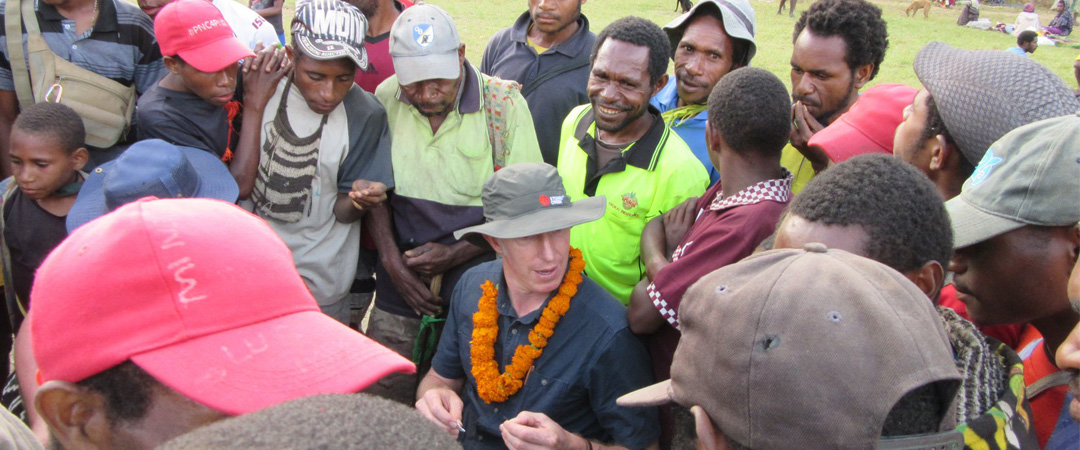
NEW LEADER FOR WYCLIFFE
INTRODUCING BRUCE (WITH JENNY) EIRENA
BY JOCK BRUNSKILL
Jock joined the Wycliffe Board while he was the Dean of Studies at Eastwest College of Intercultural Studies, and continued through his time as the NZ Leader of WEC Aotearoa New Zealand. Jock has a background in law and accounting, and in pastoral and mission leadership. Jock and his wife Cathy have eight adult children and a growing tribe of grandies.
I am very pleased to announce the appointment of Bruce Eirena as the next Executive Director for Wycliffe Bible Translators New Zealand from 1 January 2024 for a four-year term. The Wycliffe Board met in Christchurch recently and were pleased to make this important decision unanimously. It was our collective discernment that Bruce is the person that God wants to lead Wycliffe New Zealand into the future.
Bruce writes,
“God’s Word in every language, in every life.”[1] This is a great summary of my motivation for being part of Wycliffe Bible Translators NZ. As I prepare to step into the role of Executive Director, I’m looking forward to furthering this vision.
Wycliffe NZ has members involved in projects in over twenty countries and on every continent around the world, ranging from a variety of support roles to literacy, translation and scripture engagement. Something I like to celebrate is the life lived by each of these people as they go about their work; their lives are a living testimony to the Word of God.
Here’s a taster of my history… I have a Bachelor of Theology and a Graduate Diploma in Psychology. I worked as an IT manager in the UK and a senior network engineer in outsourcing IT companies in Aotearoa New Zealand. I have ministered as an Associate Pastor in our church in Warkworth and also pastored a small rural church. In Papua New Guinea I served as a Regional Director with SIL (formerly the Summer Institute of Linguistics) before returning home to be part of the leadership team in Wycliffe NZ in 2020, where I served as an Associate Director. Over the years I have also been support-crew for my wife Jenny for her many gigs as a professional singer.
Bruce & Jenny Eirena at Wycliffe NZ’s 60th Anniversary Celebration, Mt Albert Baptist, 30 Sept. 2023.
We shared the home-schooling of our children, of which we have four: Indianna (daughter, 23), Tynan (son, 21) and Arlen (youngest daughter, 17), and while we were in PNG we met Patronila (Nilah) who is now our oldest but newest daughter (now 27 years old and unofficially adopted).
I enjoy hands-on work. In 2021 we moved to a small ex-forestry block of land which we are enjoying developing. Although we only joined Wycliffe NZ in 2014, we have been part of the Wycliffe family far longer. Jenny’s parents joined the organisation in the 1960s and served for many years in Papua New Guinea, the US and the UK. I am encouraged by the knowledge that God’s words are timeless, even as our world keeps changing. Please pray with us as we engage this dynamic world with God’s truth in love, through His Word.
1. A byline of SIL Papua New Guinea
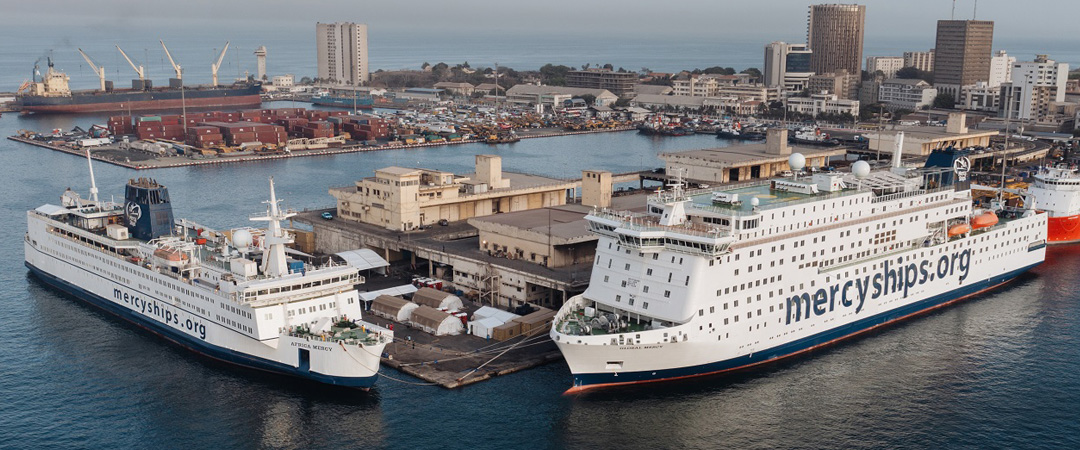
NEW LEADER AT THE HELM
INTRODUCING MERCY SHIPS NZ DIRECTOR TONI-MAREE CARNIE
BY MERCY SHIPS NZ
Mercy Ships utilises surgery ships as a platform to transform lives and serve nations in Africa.
They seek to follow the model of Jesus, bringing hope and healing to the forgotten poor. For more than 40 years they have been providing free surgeries and humanitarian care for people without access to the health care services they need.
“I felt a heart-tug to do something that makes a real difference in vulnerable people’s lives, a role with a purpose,” shares Toni-Maree Carnie, incoming National Director for Mercy Ships New Zealand. She takes the baton from Graeme Walls, who has served with Mercy Ships internationally for 40 years.
Toni-Maree came to Mercy Ships NZ after five years as CEO of Volleyball New Zealand, where her team developed the sport to become the fastest-growing secondary school sport in the country. Now, Toni-Maree brings her skills and experience to a whole new charity code.
Toni-Maree explains, “Sitting close to my heart are the words ‘to whom much is given, much is required’. Making a difference in people’s lives is a key part of my DNA. For years sport was my mission field, but now I feel it is time to move to a different mission field—that of Mercy Ships.
The life-changing surgeries provided to the forgotten poor of Africa are a key connector back into society for those nudged out by physical ailments, none of which are of their own making. I am so blessed to be a small part of an international charity making such a difference in people’s lives.
With two hospital ships and double the staff and funds required to keep providing for successful surgeries in the future, the challenge is huge—but the life-changing benefits for families and communities in Africa are momentous. I am excited to be a part of that.”
Toni-Maree’s experience in her church community and her passion for making a difference in the lives of Africa’s most vulnerable see her uniquely poised to lead Mercy Ships New Zealand. We’re stepping into an exciting and challenging season as we support two hospital ships serving sub-Saharan Africa.
Would you like to invite Toni-Maree as a guest speaker at your church or community group? She is looking forward to meeting as many Mercy Ships friends and supporters as possible and would be delighted to receive your invitation. You can contact Toni-Maree via Mercy Ships’ email enquirer address: msnz@mercyships.org.
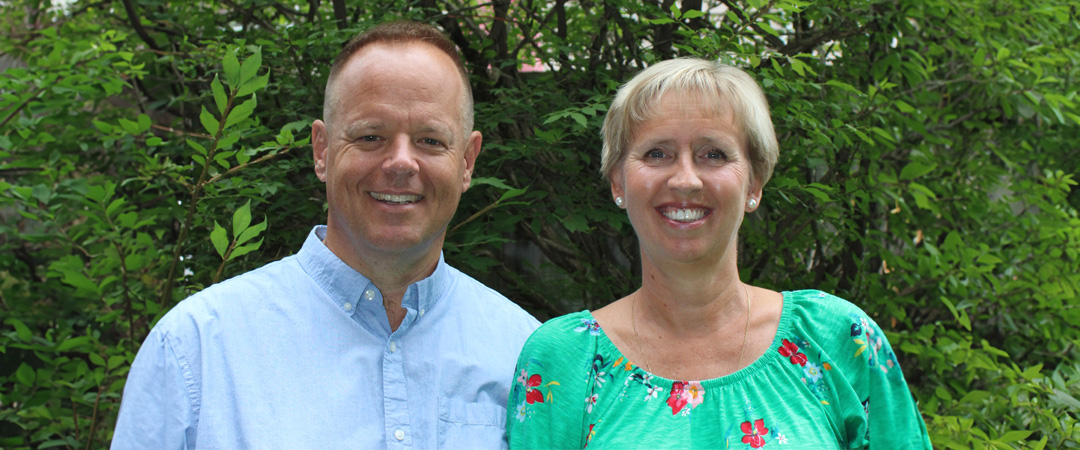
NEW SIM INTERNATIONAL DIRECTOR
INTRODUCING PHIL BAUMAN
BY SIM NEW ZEALAND
SIM is a multi-ethnic, multi-skilled teams organisation living out the gospel in heart, word and deed with the vision to see: 1) a witness to Christ’s love where He is least known, 2) disciples of Jesus expressing God’s love in their communities, 3) Christ-centred churches among all peoples. This announcement is used with permission from SIM New Zealand’s website, September 2023.
Phil has served with SIM in senior leadership roles with SIM for more than 15 years, including as Ghana Director and, since 2020, as the Global Director of Strategic Development on SIM’s International Executive Team.
He said: “I am honoured and humbled to have been confirmed in this role by a vote of SIM members and by the Board of Governors. My prayer is that SIM can continue to grow in the direction set by Joshua Bogunjoko (current SIM International Director), as we seek to make disciples of the Lord Jesus Christ in places where He is least known.”
Canadian Phil, 52, lives just outside Toronto with his wife Andrea and will start his five-year term on March 1, 2024.
He joined SIM in 2000, serving with his wife Andrea among the Sisaali people in northern Ghana. They moved to Accra in 2008 and Phil became Ghana Director in 2011. Phil has an engineering degree and an MA in Mission and Theology.
Dr Bogunjoko said: “I have worked closely with Phil for many years and firmly believe he is answering God’s call by taking on this role. I am excited to see his appointment and can clearly see the way God has led the search committee, the board and the whole mission in the process of selecting him. Phil is a gifted leader and will, I am sure, lead this wonderful organisation with courage, wisdom and distinction. My prayer is that God will lead, strengthen and encourage both Phil and Andrea as they prepare for this significant step in their lives and as they face the challenges that will certainly lie ahead.”
SIM International Board of Governors Chair Gillian Phillips said: “Phil was the unanimous choice of the search committee and of the board. We are delighted he has agreed to take on this challenging role and can clearly see God’s hand in this. We pray for God’s blessing on his leadership and look forward to seeing the mission thrive under him.”
SIM is an international mission organisation, with more than 4,000 workers worldwide, which focuses on taking the gospel to places where this is little or no witness to Christ.
From its founding more than 125 years ago, SIM has been multinational, drawing members from more than 70 nations.
SIM is also a mission-planting mission which has helped found, support and empower mission movements and new mission agencies in many of the countries where it serves.
For more information about SIM in Aotearoa New Zealand, contact SIM NZ, Rob Reynolds, nz.director@sim.org

LONG DISTANT RELATIONSHIPS
STAYING CONNECTED WHILE FAR AWAY
BY JARED BURWELL
Jared Burwell is husband to Corrie and father to six children. Jared felt God’s call to ministry while living in Seattle and later planted a church in South Seattle. Four years ago, God directed Jared and Corrie to shift ministry focus and move to Richmond, Virginia, for a new assignment. Jared is now the missions pastor of Movement Church, where he oversees global and local missions and church planting. This article was curated from The Sent Life blog, 22 January, 2021.
Sadly, some of the most gifted servers struggle to connect with folks back home. It’s understandable! With the work being so important and urgent, communiques and newsletters get brushed off and are often thought of as a task to be done only if the “real” work gets done first. Let me push back against that! As a person who wants to support, send money, pray, or advocate for you on this side of the world, telling your story and giving me a chance to get involved are part of the work, too.
In a spirit of love, here are a few tips—some do’s and don’ts—to help you communicate effectively to those who love and support you back home. Some of these are small, but they can make a big difference in the response you get from your fans and supporters.
DO:
Communicate in a regular rhythm.
I would urge you to get your message out monthly. It might help you to calendar this in as a recurring activity during your “work hours” (I know, I know, you don’t have regular work hours). Sometimes something big happens that warrants its own news blast, but that is probably the exception.
Include pictures!
A couple of large, crisp photos are preferable to 10 small ones. I don’t want to open a newsletter that looks like the front of my refrigerator.
Use good formatting.
Create a nice-looking document and attach it as a PDF, or use a Mailchimp newsletter template.
Ask for funds.
Yes, really—if your sending organisation permits. If so, and if your work relies on donations, ask for them and give a super easy way for people to donate. You are not begging for money, you are sharing your vision and giving people an opportunity to get in on that vision. Never be ashamed or apologize for asking for what you need, just be clear and reasonable in your ask.
Share what you are learning and reading.
What’s challenging, shaping, and developing your thinking? What’s giving you fresh vision for the next season? Bring us along in your growth journey.
Keep it short.
Just because people love you and want to know what you’re doing doesn’t mean they are prepared to wade through multiple pages every month. Really. I hate to break this to you. People will open your letter and then close it in defeat if it looks really tedious and long. Discipline yourself to be brief: 1-2 pages tops (unless there’s some really big event, a birth of a baby, or catastrophe that warrants a photo essay).
Be clear about your “call to action”.
If there’s something you want us to know, pray about, give towards, or do, make it super plain and clear. Don’t leave any doubts in our minds what you are asking us to do. Most of us can’t hold a list of 9 to-do’s in our minds. Give us one or three at the very most.
Mix it up.
On occasion, send a link to a video update in lieu of your regular newsletter attachment. Keep the video brief. Don’t worry about adding background music (please don’t, actually!) or doing a lot of editing. Just tell your story and, if possible, let us see some of what your eyes see during the course of your work. Raw and honest is good (so long as we can hear the audio and your filming style doesn’t make us nauseous!). We don’t expect a polished video production.
DON’T:
Flood the channels with quantity over quality communication.
It doesn’t matter how lovely you are or how important your work, there is such a thing as communication overload. While you might have multiple communication channels, not everyone needs to be on every one of those (email, text group, Facebook, Instagram, blog, etc.). You might consider a chat group just for your relatives who want to talk multiple times a day, send memes, or attach videos of the kids being silly. But don’t overdo that with supporters. This will wear them out and they will tune you out.
Wait too long between updates.
On the flip side, do not expect people’s hearts and minds to track with you if they only hear from you once or twice a year. They will not remember your stories or engage with your work. I’ve found that an effective rhythm of communication is once a month.
Use a non-standard newsletter format.
I can’t tell you how many newsletters I’ve gotten that are actually image files. They are unbelievably annoying. You have to zoom in to read them – if you can read them at all. Please do not do this. A standard document format is much preferable.
Violate ethical or security protocols.
Yes, we want to be in on the action of your work and see compelling pictures! But please do not cross ethical boundaries or endanger anyone by using photos that should not be shared. We understand if you need to pixelate a face or other details to make an image safe to share.
Over-sell or under-sell.
We get it; if you’ve put your heart and soul into an event only to have 20 people show up, that’s disappointing. Let us be disappointed with you and learn with you. Don’t “sell” us camera angles to make the event look like the largest gathering on earth. We can see through that stuff. At the same time, don’t under-sell your work, either. Let us rejoice with you when things go great and you score a victory. Sometimes humanitarian workers think they have to constantly self-flagellate. You don’t! Just keep it real.
Say “no” for people.
Maybe your life doesn’t feel all that interesting or amazing (especially if you’ve been doing the work for a long time). But it is to many people. Some folks will read your stories and be so inspired they will want to partner. They may offer to send you money to go out for a treat, ask if your kids want something special in a care package, offer to buy you a plane ticket to see family, or even propose to take time off so they can to travel to where you live. Don’t say “no” for them! Maybe their original offer isn’t what you actually need. You can still affirm their generosity and enthusiasm while redirecting them to a more pressing need.
Finally, please know: We, your supporters love you! We often are not good at replying to your newsletters or staying in touch with you on this side of the world. Please forgive us for this. We know (if you use newsletter services such as Mailchimp) that you can see who opens your newsletter and how many of us let them lay untouched in our inboxes. This has to be discouraging that so many don’t open— let alone read or engage with—your newsletters. But I promise you, there are those who do and who want to stay engaged. Write for us. And ask us who else we know that needs to hear your story.

PRAYERLINKS
PRAYER FUEL FOR MISSIONS
Give thanks for the completion of the work on their roof, which the storm took back in February. Please pray for Joseph, whose elderly mother came to the Lord. Pray that Joseph will read the Word of God and have his eyes opened to the Truth. Similarly for Timothy who was a regular attender at Passover and Shalom Camp for youth. He has been distracted, pray that God will draw him back into the Word. Finally, please remember Vicky Wells. The doctors told her the eye operation they wanted her to have hasn’t been successful. So she is now legally blind. Now she cannot read, or go for a walk. It calls for big changes in one’s life!
FEBC New Zealand has an initiative called Shop to Support. This enables supporters to buy amazing products while supporting FEBC’s worldwide media ministry. Please pray that more businesses will partner with FEBC to help communicate the love of God to millions of people.
Please pray for the staff team, that we may be sensitive to the leading of God’s Spirit in all we do. Also, we are grateful for the technology that allows us to work together effectively as a team, even though we are somewhat spread around the country (Waikato, Nelson, and Auckland). We are grateful for the new contacts and enquirers that God brings to us—please pray for wisdom as we seek to join in helping others discern God’s call and leading in their lives.
We give thanks for a fruitful month with Jay based in the office. His contributions to Pioneers 25th celebration, Wycliffe’s 60th Celebration, and the NZ Christian Network Congress were well received. Pray for Jay has he enters the “international conference season“. He is in Istanbul 7-13 Oct as co-leader of WEA’s Future of the Gospel Forum, with representatives of 52 nations present. He then travels to Chiang Mai, Thailand to speak at the Global Mobilization Network Consultation, followed by contributions at the International Third Culture Kids Conference at a different venue. He will arrive back home on 24 Oct for 8 days before he heads to South Korea and Malaysia in November.
Pray for all the meetings that happen in October. We are excited for opportunities to meet together to pray across the country, to meet with candidates for a training weekend, and to meet with those interested in going for a time of retreat and developing spiritual disciplines. In addition, we also have a staff and council training day. Pray for God to lead and guide each event for His glory. Budgets for 2024 are also being set this month – pray that we will budget wisely and with faith for the things God wants to do through us in the year ahead.
Towards the end of September WEC Aotearoa NZ held its annual conference, with the theme of Proclamation. Now we want to put into practice what we have learnt (or being reminded of). We are rejoicing that 7 new candidates will complete their orientation with WEC this month and turn their sites to the places that the Lord is sending them. Ask the Lord to direct their steps as they prepare to go to Central Asia and the Middle East.
Praise for wonderful 60th anniversary events in Christchurch, Wellington and Auckland where we celebrated with those who have walked with us God’s faithfulness and the opportunities to be involved in his work of transforming lives through Bible translation and scripture engagement activities. Pray for our members who are checking scripture portions in Papua, Solomons, and remotely for five people groups. Pray for us all to keep close to the Lord no matter the circumstances.
As Aotearoa New Zealand goes to the polls until 14 October, it is looking quite likely that we will once again have a minority coalition government. Regardless of which cluster of parties eventually takes leadership, pray for strong stability in our nation and that our parties will work for the good of all citizens on major issues that affect our collective wellbeing. Pray that our freedom of conscience and ability to be effective witnesses for the gospel will not be negatively affected by political change, and that the most vulnerable in our society will be well served and protected.

SPOTLIGHTS
LATEST NOTICES & EVENTS
TRANSITION TRAINING
Transition Training is an 8-day live-in program provided by Missions Interlink Australia. The course is designed to enhance the participant’s knowledge of Biblical principles and increase missiological awareness. The course provides practical experience in many of the skills necessary for making an effective transition to another culture. The course is based on learning goals and requires participants to engage in their own learning development. The various elements of the program are fully integrated and therefore we require full attendance during the course. Some material, which requires completion, will be sent to participants before the course.
Dates: 6—14 January 2024.
Location:
St Andrews Hall Church
190 The Avenue, Parkville
Melbourne, AUSTRALIA
This is a residential (live-in) course.
Registration ends 15 October 2023 OR when capacity is reached.
CLICK HERE TO REGISTER
OMF NZ HEART FOR ASIA
The OMF NZ team note that the Japan Prayer Network is meeting on 9 October. There is a special focusing on storytelling as a tool for gospel sharing and discipleship on 14 October. Then the OMF team are hosting a retreat for those considering overseas service on 4 November.
For more information about these events CLICK HERE to visit the events page on OMF’s website.
MISSIONS INTERLINK AGM
After a number of years of unavoidable online AGM’s, Missions Interlink is planning an in-person AGM for 2023. This is open to all interested parties, although there will be an aspect of the meeting where only Missions Interlink members will be eligible to vote in the new Council for 2024.
Date: 10am-12:30pm, Thursday 23 November 2023.
Location:
World Vision (large meeting room)
51 Hugo Johnston Drive
Penrose, AUCKLAND
Guest Speaker: To be confirmed.
Cost: Free
We are providing morning tea so it is essential to RSVP for catering purposes. Please RSVP by 15 November to: info@missions.org.nz.
2024 NZ TCK CAMP
The ever popular Kiwi TCK Camp will be held on Eastwest College’s campus once again next summer! Online registration for the camp will open sometime this month.
Dates: 16-20 Jan, 2024.
Location:
Eastwest College
21 College Drive, RD 1
Taupiri 3791
For more information contact Joyce Campbell at: martin.joyce.campbell@gmail.com
NZ HERITAGE NEW TESTAMENT
Former Missions Interlink NZ Director, David Hall has laboured long to create a unique New Testament featuring stories and commentary about the development of Christianity in Aotearoa New Zealand. He has been getting many positive responses from those who have purchased and are distributing the 450 page editions for free.
He still has some stock and is offering the books at cost, for $5 each (plus shipping) for a box of 32 or part thereof.
They can be purchased by request from David by email: ourNZstory@gmail.com.
CARE & SUPERVISOR SUPPORT GROUP
Missions Interlink Australia have launched a new quarterly member care professional development ministry. This ministry will focus on interactive peer group discussions, specifically centered around member care case studies. During the first Zoom meeting on 28 Sept., the group had a discussion led by Christine Bird (CMS Australia Member Care) about how to effectively follow up with cross-cultural workers during their home assignment. Future sessions will provide opportunities for participants to bring their own case studies and lead interactive discussions. This ministry is open to all who are working in the field of missionary care and/or professional supervision. This will be a valuable and enriching experience for everyone involved.
For more information and to be added to the notifications list contact Christine Bird: Cdbird1@gmail.com.
SOUTH PACIFIC MEMBER CARE NETWORK 2024 CONFERENCE
The SPMC Network conference provides an opportunity for professional development and networking with others, sharing your passion to care for those working in cross cultural situations. The speaker is Tony Horsfall from the UK. Tony has been involved in local church leadership for over 30 years. He regularly travels to Singapore and Malaysia to share the message of grace and intimacy with missionaries and church leaders.
Location:
Pallotti college
80 McNamaras Rd
Westburn, VIC 3799
AUSTRALIA
Dates:
From: 29 April 2024 from 2pm
To: 3 May 2024 after lunch.
For more information including pricing click here to visit the MI Australia event page. Earlybird rates expire 30 November 2023.
GLOBAL MEMBER CARE NETWORK 2024 CONFERENCE
The Global Member Care Network is working on their vision to bring the Global Member Care world together again for their 4th Global Member Care Conference, this time in Africa. The significance of this location is to serve African mission movements, while learning from their unique strength in missions and member care. Past experiences have shown that surprising connections and transformative insights happen individually, organizationally, and nationally when member care practitioners gather from various national missions movements all over the world.
Location: Nairobi, Kenya
Dates: 28 Oct – 1 Nov 2024
For more information visit: https://globalmembercare.com/conference-2024/
(SAVE THE DATES)
ABOUT US
Executive Officer Jay Mātenga
Administrator Pauline Wood
Executive Team
Joseph Bateson (Chair), Glenn Carter (Vice Chair), Jon Horne (Treasurer), Russell Thorp (Secretary), and Andrew Marriott.
MI Council
Arotahi (formerly NZBMS), Asian Outreach, Beacon Partnerships (formerly LeaDev-Langham), Church Mobilization Trust, Eastwest College, European Christian Mission, GC3, International Teams, Interserve, Laidlaw College, MAF, MotiVate, NZCMS, OMF, Pioneers, SIM, WEC, World Vision, with individual member: Jon Horne.
Our Purpose
We facilitate collaboration towards participation in mission from and within Aotearoa New Zealand. We nurture the missions community in Aotearoa New Zealand to connect, converse, and conduct mission with the aim of working together: on mission.
Connecting the missions community
from and within Aotearoa NZ
for God’s glory everywhere, always.
MI SERVICES include (but are not limited to):
MI BULLETIN MI Online Member Directory
MI ManaakiApp (for retail discounts & coupons)
MI Research and Resources
MI Conferences, Clusters & Collaborations:
Admin, Mission Leaders, Church Mission, Diaspora,
Member Care, Mission Training, Mobilisation, & more.
HOW TO CONTACT US
PO Box 64 379
Botany 2163
Auckland, New Zealand
+64 9 320 4408
CLICK HERE to drop us a note.
ADVERTISING
The MI BULLETIN is distributed by email every month to around 1000 missions interested people.
Commercial Rates & Sponsorship
Only charity rates are listed here. Commercial ad rates and sponsor benefits are set by negotiation.
Spotlight Notices
Text only (up to 50 words with one web link).
MI members — FREE
Non members — $40 per spotlight
BULLETIN Full Colour Ad Space
Artwork must be supplied (.jpg or .pdf, 300dpi)
Deadline: Last Friday of the month before issue.
COST: MI MEMBERS
First Month
A4 Portrait—$150
A5 Landscape—$110
Successive Months
A4 Portrait—$100
A5 Landscape—$80
Non-members, double the member rate.






